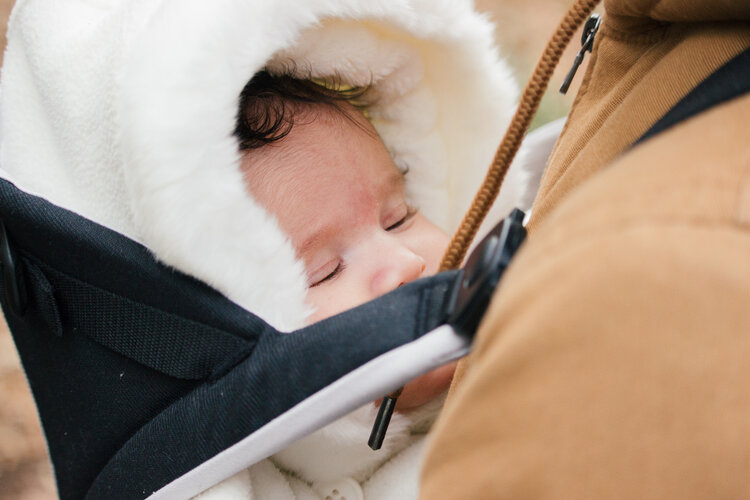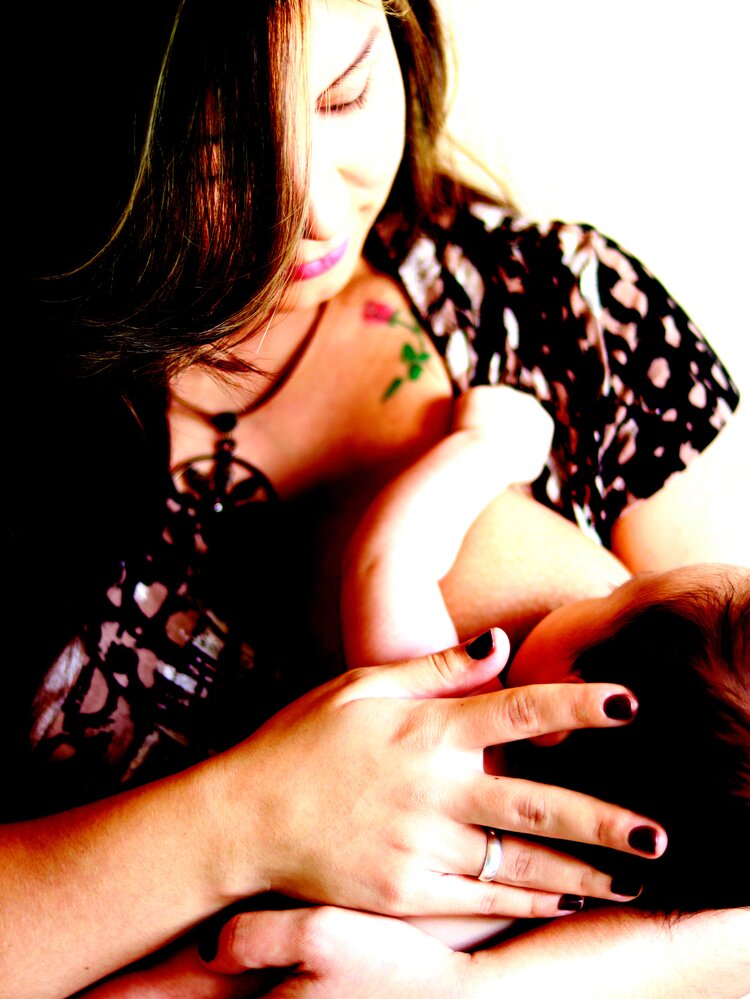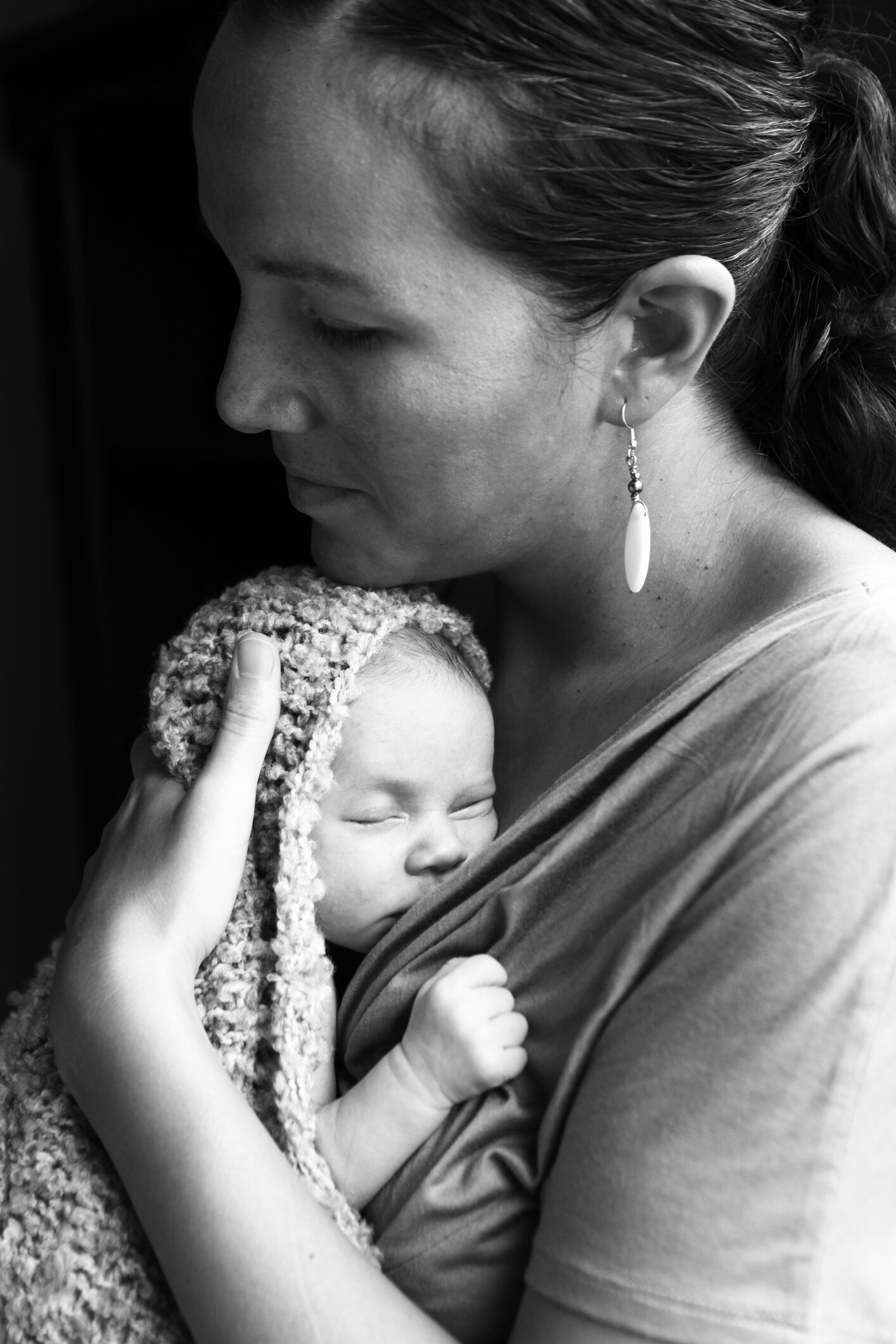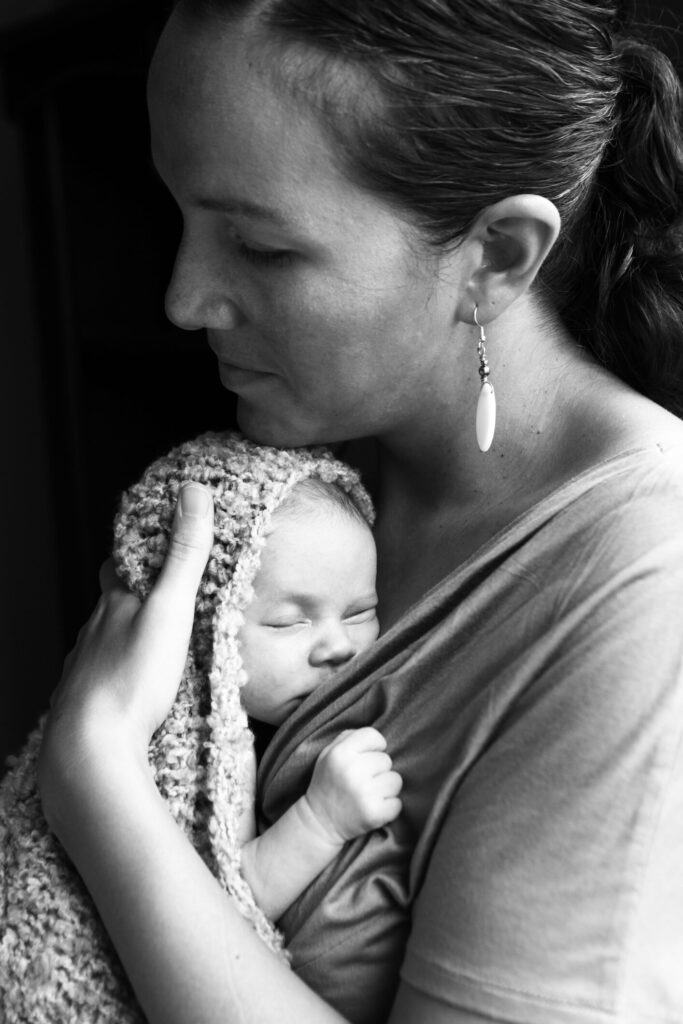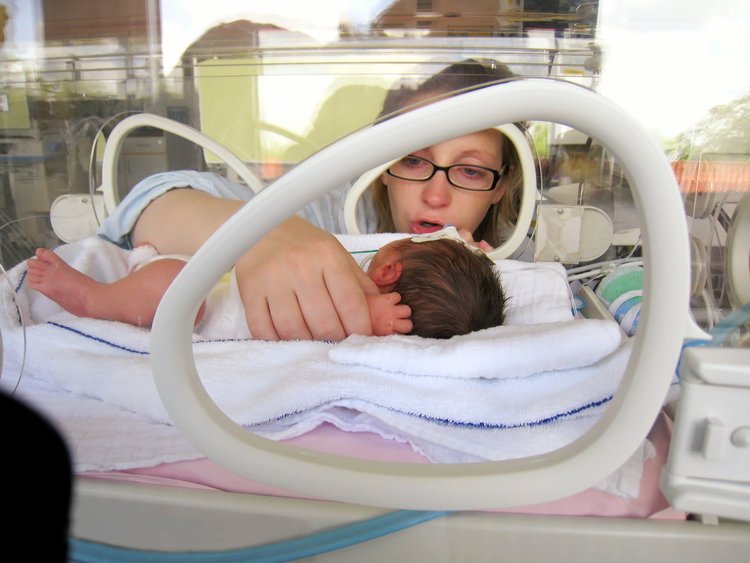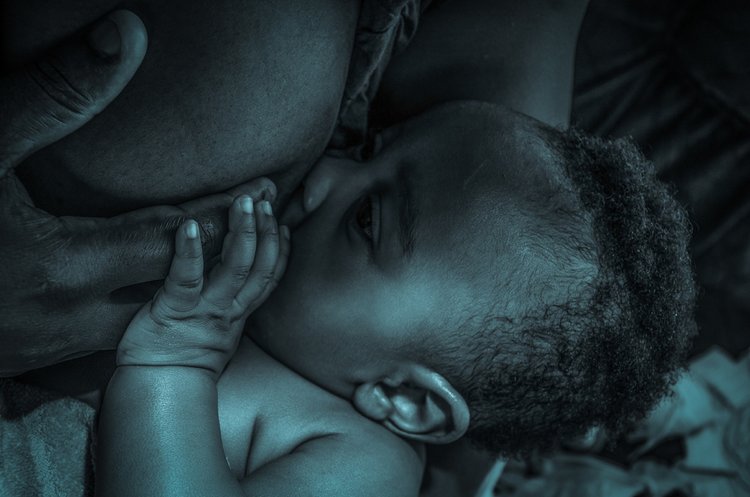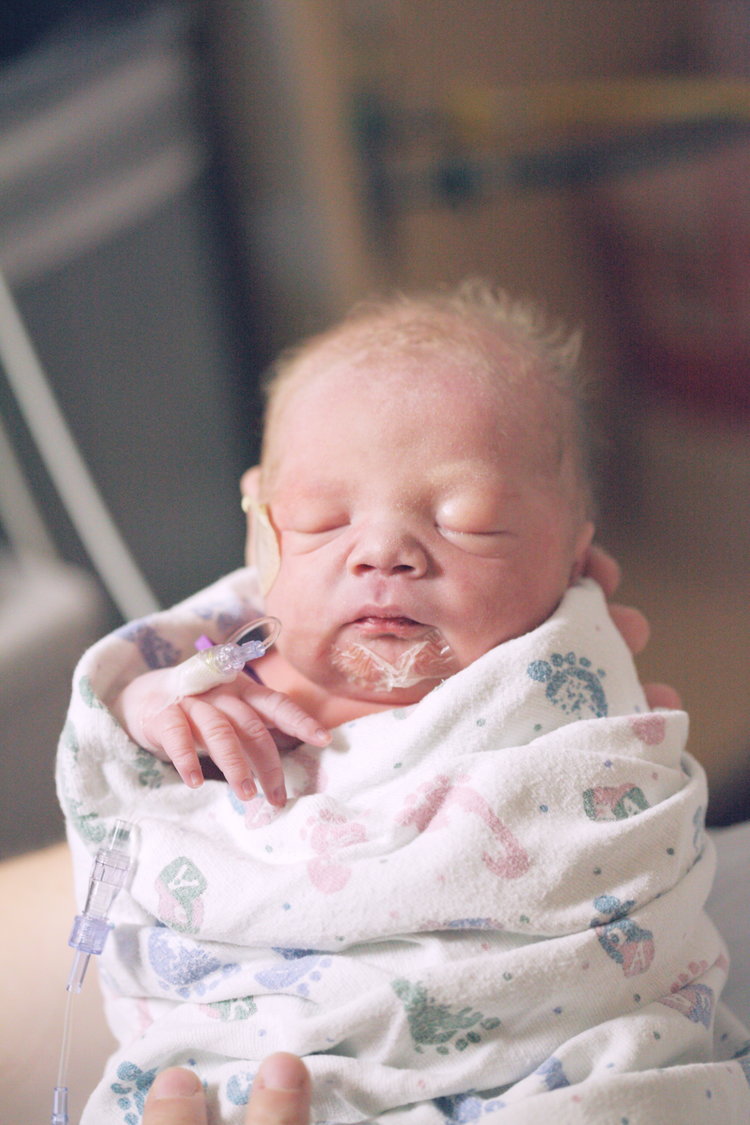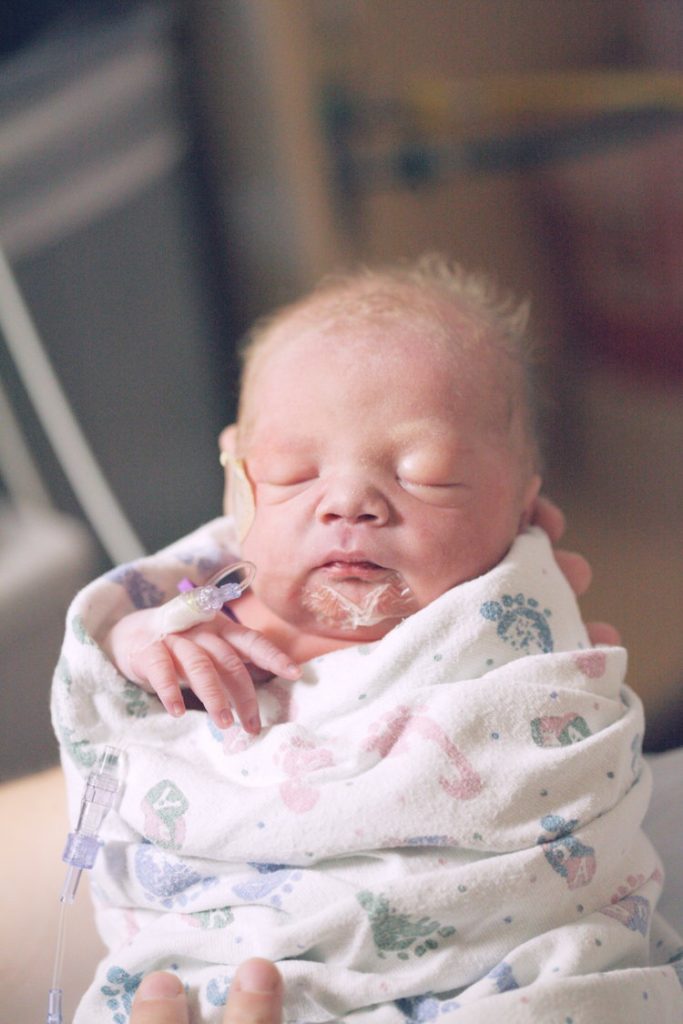Knowing what you might expect as you feed your child in the early days and weeks of their life is helpful! Here are aspects of baby feeding that are typical: Stanford University offers videos developed by Dr. Jane Morton on a variety of infant feeding topics.
Baby Care
Topics in Baby Care
Baby Wearing Basics and Safety
Baby Wearing Basics and Safety
Baby wearing can be fun and useful, not only for when you are out and about but also around the home. Infants usually feel happy and settled when close to their caregivers. Using a tool like a wrap, sling, or carrier enables that connection while also freeing your arms and hands – hooray! Many families […]
Bonding with Other Children
Bonding with Other Children
There is no perfect answer for how to grow a family. Adjusting during the months right after the birth of a new baby is the most intense. There are some things that might help. Try to set aside special time for your older child(ren). Each parent should spend some one-on-one with the older child(ren) every […]
Bottle, Cup, and Spoon Feeding
Bottle, Cup, and Spoon Feeding
Babies can be fed by a variety of methods in the 4th Trimester and beyond. At-breast feeding is optimal for infant development, but may not be possible or desired. In addition to supplemental nursing systems, methods of feeding mother’s milk or formula include by bottle, cup, or spoon feeding. When using a bottle, never prop […]
Breast Care After Loss
Breast Care After Loss
Caring for your breast after the loss can be difficult. Here are some tips to help reduce pain and to stop milk production: For more details about breast care, pain, drying up for your milk, see the Breast section of our site. Resource: Breast Care After Your Baby Dies, DHHS
Breastfeeding & Substances
Breastfeeding & Substances
Alcohol, tobacco, and drugs (e.g. marijuana, cocaine, heroin, and other drugs) can go from the mother to the baby through breastmilk and/or by second-hand smoke. Alcohol and Human Milk For alcohol, the Centers for Disease Control and Prevention says that “up to one drink per day is not known to be harmful to the baby, especially […]
Childbirth Trauma and Maternal Near-Miss
Childbirth Trauma and Maternal Near-Miss
Childbirth Trauma Giving birth is a powerful experience and the journey often unfolds in ways we might not expect and cannot control. Sometimes women feel that their transition to motherhood is traumatic. This may result from unexpected or unwanted medical interventions during labor and birth and/or postpartum, the speed at which they labored, the way […]
Conditions for Additional Support
Conditions for Additional Support
The Academy of Breastfeeding Medicine has numerous free protocols on considerations and things to do in relation to breastfeeding with certain conditions. These topics include late preterm birth, NICU graduate, blood sugar, jaundice, tongue tie, low muscle tone, insulin-dependent diabetes, food allergies, and cleft lip or palate. Family, friends, and other supports will ideally listen […]
Developmental Age and Reactions to Baby
Developmental Age and Reactions to Baby
Everyone is adjusting and will respond differently to a new baby and all the household upheaval that follows. Some of this may be changes in behavior, particularly among younger children, that may look like they are going back in time. Children under the age of four tend to have the greatest difficulty with the birth […]
Drying Up Your Milk
Drying Up Your Milk
During pregnancy, hormones signal a woman’s body to prepare for milk production. Sometimes milk leaks from nipples prior to childbirth. For the first few days after birth, you may notice a thick, yellowish substance that can be expressed from your breasts. This is called colostrum. About 2-5 days after birth, colostrum will become whiter and […]
Emotions & Baby Feeding
Emotions & Baby Feeding
How we feel about infant feeding and how infant feeding is going is bidirectional. That means, supporting mothers’ emotions is important for baby care and women’s experiences of infant care impact emotions. This can be a positive cycle or a challenge. Ideally, health care team members and family and friends give mothers good support to […]
Expressing
Expressing
Mother’s milk can be expressed by hand, with a manual pump (operated by hand), or with a battery-operated or electric breast pump. The time it takes to express per session varies, but may average about 30 minutes. If using a pump, you can express one side at a time or both breasts at the same time. […]
Family Loss
Family Loss
Family Loss Each member of your family experienced connections with your child differently. As a result, each family member may go through the grieving process in a different way. To help each other grieve, build a safe space that promotes open communication, vulnerability, and mutual support. The loss of a young or unborn child is […]
First Conversations
First Conversations
You may have shared the news of your pregnancy with others or maybe you made the decision to keep it to yourself for a while. But now you have been given the news that your child is no longer with you. Hearing and feeling the words that your child no longer has a heartbeat can […]
Formula
Formula
The Centers for Disease Control and Prevention (CDC) offers guidance on infant formula. Babies younger than age 12 months who are fed formula should be given a product specifically designed to meet their nutritional needs. Formula for toddlers, homemade infant formula, and formula imported from outside of the United States is not recommended. According to […]
Human Milk Storage
Human Milk Storage
Fresh milk is the highest quality for baby feeding, as refrigeration and freezing impacts the properties over time and also provides opportunity for bacterial growth (like with all foods). When storing expressed milk, consider doing so in increments similar to what you baby might use per feeding. The Academy of Breastfeeding Medicine (ABM) outlines milk […]
Managing the NICU Environment
Managing the NICU Environment
Neonatal Intensive Care Units (NICUs) are all designed differently. Some have private rooms where moms and babies stay together – with beds for moms. Others may have many infants in a single room or pod and hardly even a comfortable chair available much less a place to sleep. Regardless, NICUs often have a lot of […]
Managing Time and Support
Managing Time and Support
Going from 1 to 2 children, 2 to 3 children, or 3 to more children while recovering from pregnancy, labor, and delivery is not easy! Finding time for self care with even one infant takes some doing – caring for yourself, baby, and other children is definitely a challenge. Fortunately, you have experience from your […]
Medications and Herbal Supplements
Medications and Herbal Supplements
The safety of medications differ for mom-baby dyads between pregnancy and postpartum. Determining what treatment is most appropriate in any given situation can feel overwhelming, especially when your health care provider may not be very familiar with medications and breastfeeding. There are several free resources that can provide up-to-date information on medications in breastfeeding: For […]
Milk Supply
Milk Supply
Women may experience under or oversupply of milk. Like “birth works,” breastfeeding too generally goes well. However, like with all aspects of our bodies, problems sometimes arise. Dr. Alison Stuebe has coined the term “lactastrophe” so referring to such problems. In addition to breast pain, conditions of concern include under or oversupply of milk. Undersupply […]
New Baby Health Information One-Pager
New Baby Health Information One-Pager
Newborn health and care information sheet
Nighttime
Nighttime
Nighttime feeding and sleep are hard to cope with, especially in the first weeks. The Baby’s Sleep section provides an overview of common infant sleep patterns – most newborns sleep often but for short periods of time. Breastfeeding or expressing milk generally matches this pattern, with infant feeding occurring every few hours or more, around […]
Nurturing Your Baby
Nurturing Your Baby
When feeding baby there are some important things to know. In almost every situation, mother’s own milk is the biologically best milk for her baby. Human milk provides the nutrients baby needs to grow and be as healthy as possible. Human milk is easy for baby to digest; it changes in relation to surroundings and […]
Postpartum Visit After Loss
Postpartum Visit After Loss
A postpartum appointment after a loss is used to make sure that you are recovering from the birth. Your provider may talk with you about how you feel physically, discuss genetic test results, birth control options, and if and when you might want to try again. This can be a difficult conversation. But having a […]
Premature Birth and Breastfeeding
Premature Birth and Breastfeeding
Premature (early) birth (babies born before 37 weeks of pregnancy) can be a hard experience for a mother and family. In the United States, 1 in every 10 infants are born preterm to non-Hispanic White mothers. The rate of preterm birth is greater for non-Hispanic Black mothers. After preterm birth, many babies need additional support. […]
Safer Sleep
Safer Sleep
Sleep and safety around sleep arrangements is important for everyone who cares for your baby. There are steps you can take to make sure that your baby’s sleep environment is as safe as possible. The American Academy of Pediatricians (AAP) recommends that babies sleep safest alone (on a separate surface from their parents, siblings, or […]
Seeking Support
Seeking Support
How are you? What can I do to help? Do you need anything? All questions that seem to flood your daily conversations. Everyone wants to help in one way or another. But for you, it can seem like an overwhelming feat to answer these seemingly simple questions. So you respond, “I’m fine.” Two simple words […]
Spirituality
Spirituality
For many, acknowledging the spiritual aspect of a loss is a part of the grief process. Questions about faith and spirituality are inevitable when you have a loss. You may notice that your faith is tested or challenged. Some people might find a lot of comfort in their faith community. Others may find that the […]
Taking Care of You
Taking Care of You
Women with infants in hospital intensive care nurseries (also called units) are more likely to have had a c-section, a scary birth experience, and to have chronic health conditions compared to other moms. At the same time, moms are often so intensely focused on their babies, that they (and others) forget about their own well-being. […]
The Balancing Act
The Balancing Act
While it is hard for new moms to balance taking care of a newborn, themselves, and other children / family members, this becomes very challenging with a baby in the hospital. Some moms struggle with the need for sleep as well as the need for being in the NICU with their baby. Some families have […]
Transitioning
Transitioning
Becoming a parent of more than one child produces important change in your role as caregiver, the experiences of family members, and how the family functions as group. In the midst of all this change, be patient with yourself and the process. For example, don’t put too much weight on your older children’s initial reactions […]
Transitioning Home from the NICU
Transitioning Home from the NICU
Taking your baby home from the birthing facility is an exciting and joyful event. This transition can also cause anxiety and feelings of nervousness, especially for parents of babies that have needed extra care in the Neonatal Intensive Care Unit (NICU). Getting settled in these situations, whether your baby was in the hospital for a […]
Weaning
Weaning
The World Health Organization recommends breastfeeding for two years or beyond, as mutually desired by mom and baby. When you want to or need to wean (meaning stop milk production), it’s best for your body to do so gradually. If you are actively seeking to stop milk production, see information about drying up your milk. […]
Workplace or School
Workplace or School
There are many ways that places of work, schools, and other settings can accommodate infant feeding. Mothers and other infant caregivers should feel supported. Balancing infant feeding with other responsibilities takes time and emotional energy. The Academy of Breastfeeding Medicine states that helpful strategies include: This booklet from the Carolina Global Breastfeeding Institute has great […]


